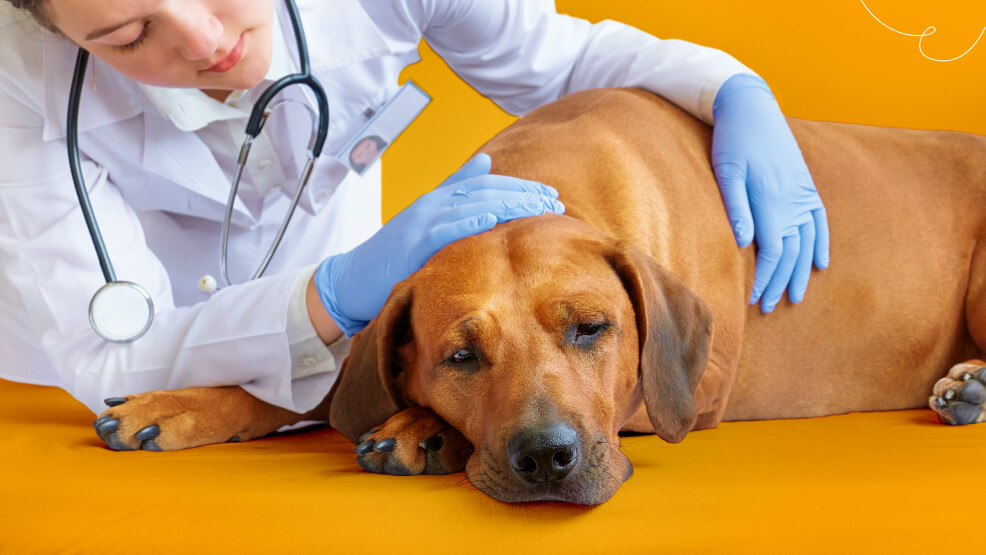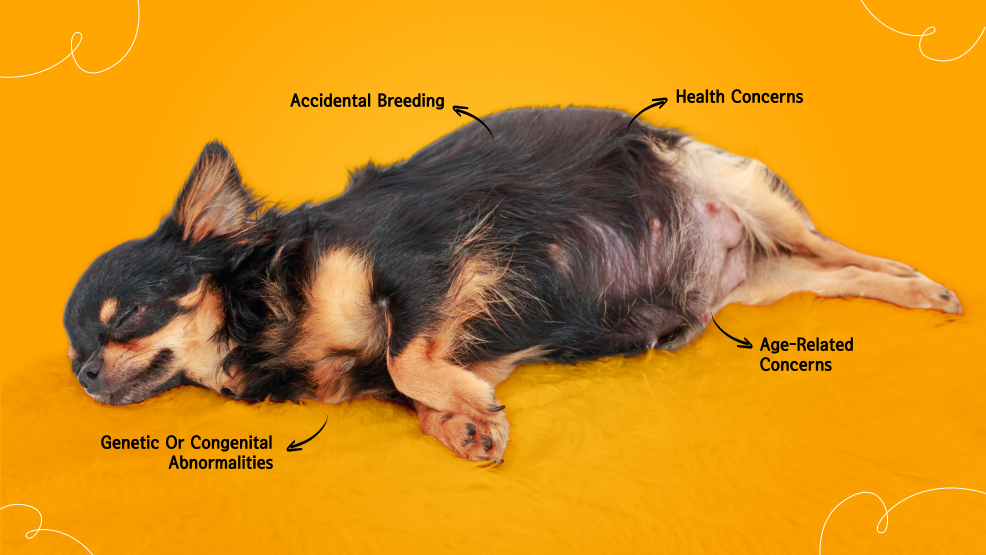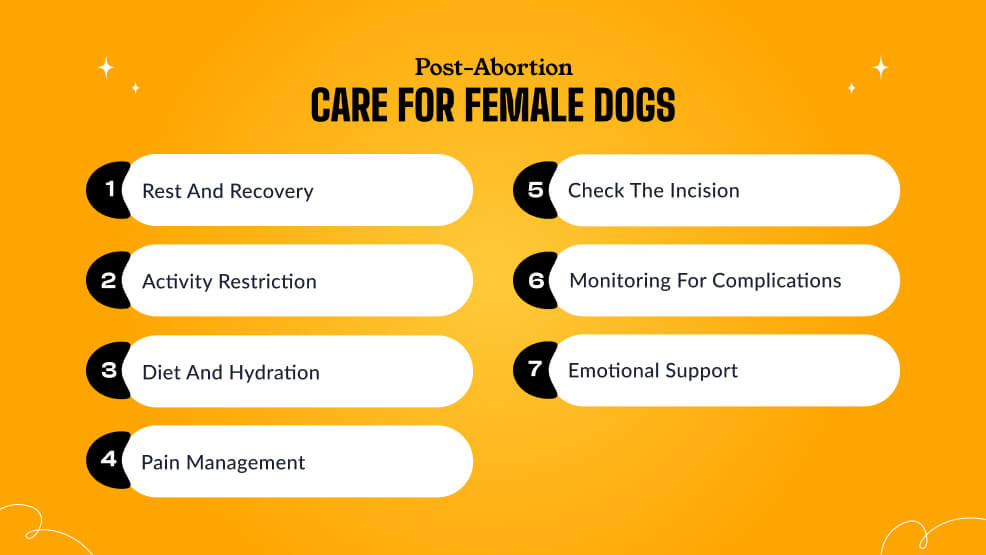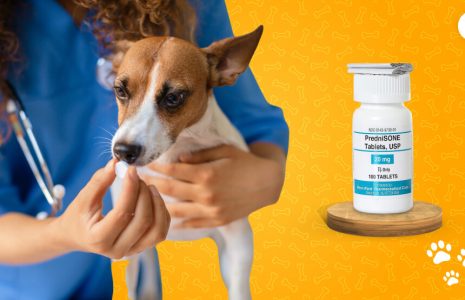Understanding Dog Abortion: Is It Ethical, And Should You Do It?


When it comes to the health and well-being of our dogs, making informed and compassionate decisions is paramount. One such decision that pet owners may face is whether or not to terminate a dog’s pregnancy. This topic, often surrounded by ethical considerations and emotional weight, requires a thoughtful and balanced approach.
In this article, we will explore the complexities of dog abortion, examining the ethical dilemmas, medical implications, and the circumstances under which it might be considered. Our goal is to provide a comprehensive understanding that helps pet parents like you make the best possible choices for their furry friends.
Understanding Abortion in Dogs
As a responsible dog parent, you might have encountered situations where you must make difficult decisions regarding your furry companion’s well-being. One such decision could be whether to consider abortion for your female dog. Abortion in dogs, also known as pregnancy termination, is a complex and often controversial topic that requires a deep understanding of the potential risks, benefits, and ethical considerations involved.
Firstly, it’s essential to grasp the concept of abortion in dogs. Unlike humans, where abortion is a personal choice, the decision to terminate a dog’s pregnancy is primarily based on medical necessity or specific circumstances that could endanger the mother’s health or the well-being of the litter. Veterinary professionals are the ones who typically recommend or perform this procedure when deemed necessary.
Secondly, it’s crucial to understand that abortion in dogs is not a simple or straightforward process. It involves various medical procedures and there are potential risks that you, as the owner, must be aware of before making an informed decision. The procedure itself can be physically and emotionally taxing for both the dog and the owner, and it’s essential to have a clear understanding of what it entails.
Legal and Ethical Aspects of Dog Abortion
When considering abortion for your female dog, it’s important to be aware of the legal and ethical aspects involved. While the laws and regulations surrounding canine abortion may vary depending on your location, there are generally fewer legal restrictions compared to human abortion.
From an ethical standpoint, the decision to terminate a dog’s pregnancy is often viewed as a medical necessity or a means of preventing potential suffering rather than a personal choice. However, there may be differing opinions and perspectives on the ethics of canine abortion, particularly if the procedure is being considered for non-medical reasons.
It’s essential to consult with your veterinarian and local authorities to understand the legal requirements and regulations surrounding canine abortion in your area. Additionally, you may want to seek guidance from animal welfare organizations or ethical committees to gain a broader understanding of the ethical considerations involved.
Ultimately, the decision to pursue an abortion for your female dog should be made in consultation with your veterinarian, considering your dog’s health and well-being, as well as your personal beliefs and ethical principles.
Reasons for Considering Abortion in Female Dogs

There are several reasons why a veterinarian might recommend an abortion for a female dog. Some of the most common reasons include:
Health Concerns
In certain cases, carrying a pregnancy to term could pose significant health risks to the mother dog. For example, if the dog has a pre-existing medical condition, such as heart disease, diabetes, or a history of difficult pregnancies, an abortion may be recommended to safeguard her well-being.
Accidental breeding: Unplanned or accidental breeding can occur, especially if your dog is not spayed. In such cases, an abortion may be considered, particularly if the dog is too young or too old to safely carry and deliver litter.
Genetic or Congenital Abnormalities
If prenatal testing reveals that the puppies have genetic or congenital abnormalities that could result in severe health issues or poor quality of life, an abortion may be recommended as a humane option.
Overpopulation Concerns
In some cases, abortion may be considered as a means of controlling the pet population, especially in areas where there is a high number of stray or unwanted dogs.
It’s important to note that these reasons are not exhaustive, and each case should be evaluated individually by a qualified veterinarian, taking into account the specific circumstances and the dog’s overall health and well-being.
Risks and Considerations of Dog Abortion
Like any medical procedure, abortion in dogs carries certain risks and considerations that you should be aware of before planning and deciding.
Some of the potential risks and considerations include:
Surgical Risks
Depending on the stage of pregnancy, an abortion may require surgical intervention, which carries the usual risks associated with any surgical procedure, such as infection, bleeding, and complications from anesthesia.
Hormonal Imbalances
Terminating a pregnancy can disrupt the dog’s hormonal balance, potentially leading to temporary or long-term hormonal imbalances that may require additional medical treatment.
Future Fertility
In some cases, an abortion procedure could potentially affect the dog’s future fertility, although this risk is generally low when performed by a skilled veterinarian.
Ethical Considerations
As with any medical decision, there may be ethical considerations to weigh, particularly if the abortion is being considered for non-medical reasons.
It’s essential to have an open and honest discussion with your veterinarian about these potential risks and considerations, as well as any specific concerns you may have regarding your dog’s health and well-being.
When to Consider Abortion in Female Dogs?

While the decision to pursue an abortion for your female dog should never be taken lightly, there are certain situations where it may be a valid consideration. Some of these situations include:
Accidental Breeding
If your dog has been accidentally bred, and you are unable physically or financially to care for a litter of puppies, an abortion may be an option to consider, especially if the pregnancy is detected early.
Health Concerns
If your veterinarian has identified potential health risks to your dog or the puppies during the pregnancy, an abortion may be recommended to prioritize the well-being of the mother.
Genetic or Congenital Abnormalities
If prenatal testing reveals that the puppies have severe genetic or congenital abnormalities that could result in significant suffering or a poor quality of life, an abortion may be a humane option to consider.
Age-related Concerns
If your dog is too young or too old to safely carry and deliver a litter, an abortion may be recommended to avoid potential complications and ensure the health of the mother.
It’s important to note that the decision to pursue an abortion should be made in consultation with your veterinarian, taking into account your dog’s specific circumstances, health, and the potential risks and benefits involved.
The Procedure of Abortion in Female Dogs
If you and your veterinarian decide that an abortion is the best course of action for your female dog, it’s important to understand the various procedures that may be involved. The specific procedure will depend on factors such as the stage of pregnancy, the dog’s health, and the veterinarian’s preferences.
Here are some common abortion procedures for female dogs:
Medical Abortion
In the early stages of pregnancy (typically within the first 30 days), a medical abortion may be performed using a combination of hormonal drugs or prostaglandins. These medications induce labor and expel the fetuses and placental tissues.
Surgical Abortion
If the pregnancy is more advanced, a surgical abortion may be necessary. This procedure, also known as a spay abortion, involves the surgical removal of the uterus and its contents under general anesthesia.
Dilation and Curettage (D&c)
In some cases, a D&C procedure may be performed, where the cervix is dilated, and the uterine contents are removed using specialized instruments.
Ultrasound-Guided Abortion
In certain situations, an ultrasound-guided abortion may be performed, where the fetuses are terminated using specialized needles or probes under ultrasound guidance.
It’s important to note that each procedure carries its own set of risks and potential complications, which your veterinarian will discuss with you in detail. Additionally, the recovery period and post-operative care will vary depending on the procedure performed.
Post-abortion Care for Female Dogs

After undergoing an abortion procedure, your female dog will require proper post-operative care and monitoring to ensure a smooth recovery. Here are some important aspects of post-abortion care:
- Rest and recovery: Depending on the procedure, your dog may require a period of rest to allow for proper healing and recovery. Provide a quiet, comfortable space for your dog to rest. Ensure she has a soft bed and is kept warm and dry.
- Activity Restriction: Limit your dog’s physical activity for at least 10-14 days post-surgery. Short, supervised leash walks are fine, but avoid running, jumping, or playing.
- Diet and Hydration: Ensure she has access to fresh water and follow any dietary instructions provided by your veterinarian. Delay feeding for a few hours post-treatment to reduce nausea. Your veterinarian may recommend dietary adjustments or supplements to support your dog’s recovery and overall health.
- Pain management: Your veterinarian will likely prescribe pain medication to help manage any discomfort or pain associated with the procedure. It’s essential to follow the dosage instructions carefully and monitor your dog for any adverse reactions.
- Check the Incision: If the abortion was surgical, check the incision site daily for any signs of infection, such as redness, swelling, or discharge. Prevent her from licking or scratching the area.
- Monitoring for complications: Your veterinarian may recommend regular follow-up visits or monitoring for potential complications, such as infection, bleeding, or hormonal imbalances.
- Emotional Support: Spend time with your dog, offering gentle affection and reassurance. This can help her feel secure and reduce stress during her recovery.
It’s crucial to follow your veterinarian’s instructions carefully and report any concerns or complications promptly to ensure your dog’s safe and speedy recovery.
Alternatives to Abortion in Female Dogs
In some cases, abortion may not be the preferred option, or there may be alternative solutions to consider. Here are some potential alternatives to abortion in female dogs:
- Spaying: If your dog is not intended for breeding and you wish to prevent future pregnancies, spaying (surgical sterilization) is a permanent solution. This procedure removes the ovaries and uterus, eliminating the risk of future pregnancies.
- Adoption or fostering: If your dog has already given birth, and you are unable to care for the puppies, consider working with reputable animal shelters or rescue organizations to find suitable adoptive homes or foster families for the litter.
It’s important to discuss these alternatives with your veterinarian and weigh the pros and cons based on your specific situation and your dog’s health and well-being.
So, Should You Do It?
Exploring the possibility of female dog abortion is a complex and often emotionally charged topic that requires careful consideration on your part and guidance from a qualified veterinarian. While abortion may be recommended in certain circumstances, such as medical necessity or the prevention of potential suffering, it is not a decision to be taken lightly.
As a responsible pet parent, it’s essential to weigh the potential risks, benefits, and ethical considerations involved in the decision-making process. Open communication with your veterinarian, seeking second opinions if necessary, and understanding the legal and ethical aspects of dog abortion are crucial steps in ensuring the well-being of your furry companion.
Remember, the decision to pursue an abortion should always prioritize the health and welfare of your female dog, considering her specific circumstances and the potential impact on her overall quality of life. By being informed and seeking professional guidance, you can make the best decision for your beloved pet while upholding the highest standards of responsible pet ownership.









Leave A Comment